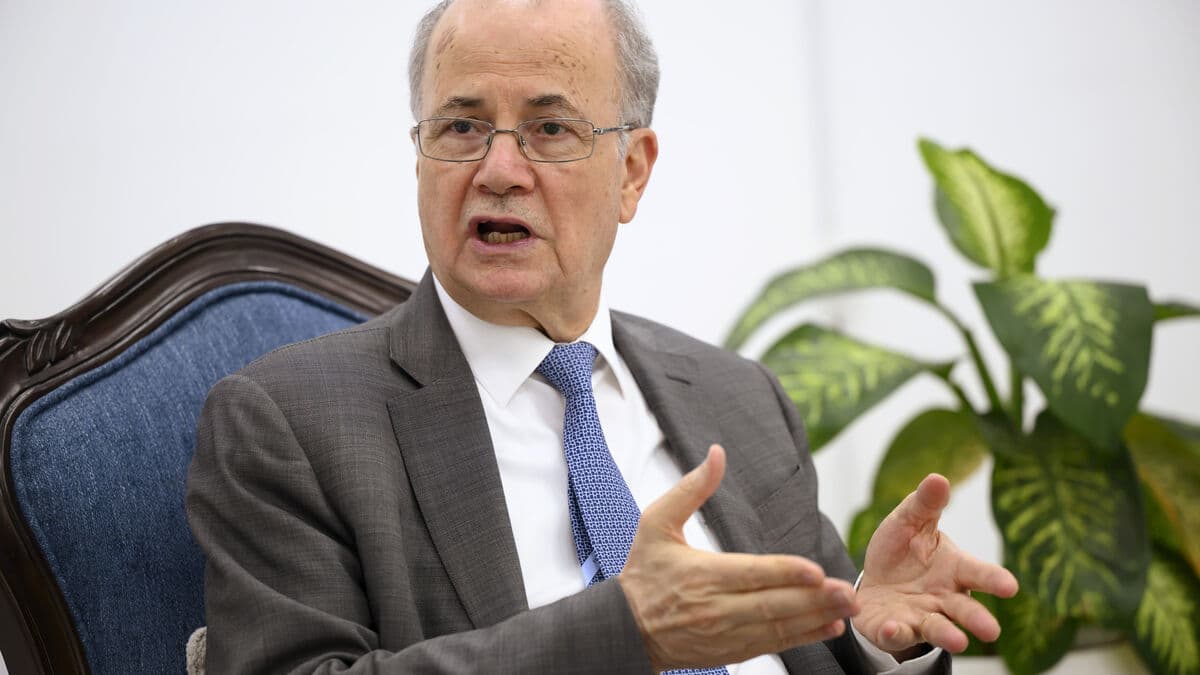The streets of Ramallah are lined with piles of trash, with pet bottles and other debris. Tourists are conspicuous by their absence. The neighborhood where the Palestinian Authority (PA) has its office stands out, with roads without large holes.
The authority, which has governed parts of the occupied West Bank since the Oslo Accords in the 1990s, is known for being far from the Palestinian people. According to a opinion poll conducted by the Palestinian Center for Policy and Survey Research (PCPSR) in May, only 19 percent of Palestinians in the West Bank and 28 percent in Gaza were satisfied with the PA's handling of the war in Gaza, where Israel has killed over 66,000 Palestinians, civilians and combatants, according to the health department in Hamas-controlled Gaza.
"We are frustrated"
If there were elections today, only six percent in the West Bank and ten percent in Gaza would vote for President Mahmoud Abbas from Fatah, clearly beaten by the terrorist-stamped Islamist movement Hamas' candidate Khaled Mashal.
Why is Abbas so unpopular - when the only real opposition has been Hamas?
We signed the Oslo Accords 32 years ago, and people hoped that a two-state solution would be in place in maybe four or five years. Instead, the occupation has continued. So we are frustrated that we have not been able to deliver, says Prime Minister Mohammad Mustafa, appointed by Abbas, in a rare interview with TT.
The opinion figures are low and no elections have been held since 2005. Does that not mean that the authority is facing a legitimacy crisis?
Firstly, Hamas has controlled Gaza and is currently occupied by Israel. In East Jerusalem, we have been prevented from holding elections. It is in our interest to hold elections. If the same survey had been conducted today, I am convinced that it would have looked different.
Believes in recognition from the US
Mustafa refers to the fact that the Palestinian Authority may be facing a momentum after several countries, such as the United Kingdom and France, have recognized Palestine as a state.
The recognitions are a receipt that we have the right to self-determination and that we deserve a state. Of course, it is another thing that the world lives up to it.
However, an important recognition is missing, notes Mustafa, pointing to the US, one of Israel's closest allies. Trump has previously claimed that recognition would reward "Hamas terrorists".
Recognition from the US has great significance, and I would like it to come as soon as possible. Just a few months ago, we never thought that recognition would come from France and the UK, says Mustafa, who himself believes that it is fully possible for the US to recognize Palestine in the near future.
On Monday, Trump presented a peace plan for Gaza, which the regime in Ramallah has welcomed. The plan includes demands that the authority be reformed before it can take control of Gaza, which Denmark has also set as a requirement for recognition.
Reforming the authority, which is accused of corruption by both Israel and Palestinians in the West Bank, was a promise from Mustafa when he took office as prime minister in February 2024. But what has actually happened since then?
We have an anti-corruption agency with a new strategy. Through digitization, we can reduce the human factor. Our transactions are well-documented, accounted for through international companies such as Ernst & Young, and our budget is published openly on our website.
Wants to see pressure on Israel
Another urgent obstacle is that Israel has blocked income tax to the authority since May, which can risk a collapse, according to the prime minister.
If you cannot pay your employees, social services, and security services, it undermines the government, of course. The question is why the Israeli government is doing this. Because they want us to collapse? Because they do not want to see a solution? I think the focus should be on pressuring Israel to act differently.
Advertisement
Mustafa claims that accusations from Israel of corruption are a strategy to undermine the authority.
One day we are accused of not having condemned Hamas, even though we have done so since day one. The next day we are corrupt. They (Israel) find excuses all the time not to solve this conflict once and for all, he says.
Our message is clear: We can take care of ourselves. Focus on solving the political problems that exist between us so that two peoples can live in this region peacefully and safely.






